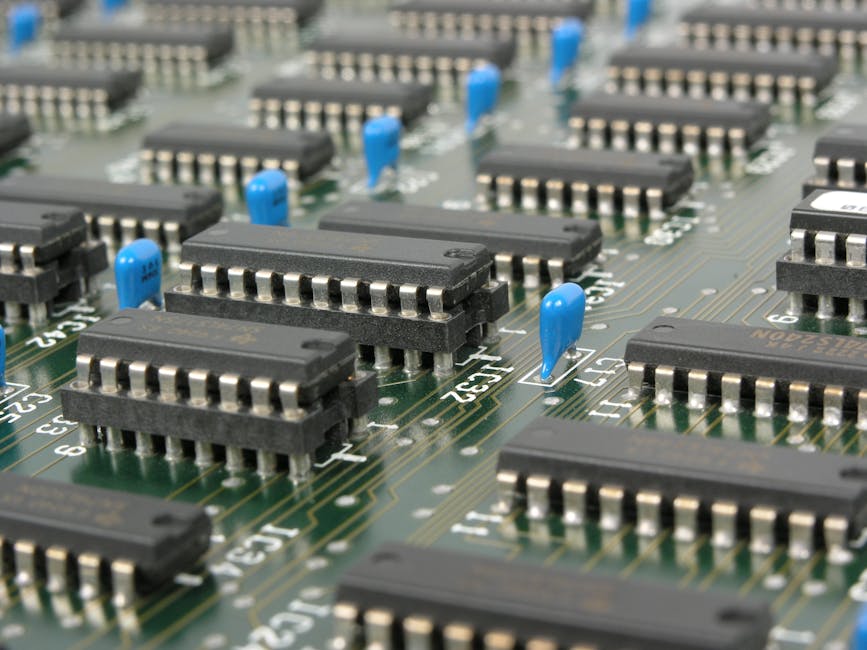Invest In The Future: The Importance Of Modernising Your Cobol Systems
Are you still relying on outdated COBOL systems? Have you considered the importance of modernising them to stay competitive in the ever-evolving technological landscape? Investing in the future by upgrading your COBOL systems is not just a matter of choice, but a necessity for businesses today.
Outdated COBOL systems present numerous challenges, from limited efficiency and productivity to security risks and compliance issues. However, by embracing modernisation, you can unlock a world of opportunities. Upgrading your COBOL systems allows you to increase efficiency and productivity, enhance security measures, integrate with modern technologies, and ultimately achieve cost savings and a higher return on investment.
In this article, we will delve into the significance of modernising your COBOL systems. We will explore the challenges posed by outdated systems and discuss how updating them can address these issues effectively.
By following our step-by-step guide to successful modernisation, you will gain valuable insights into harnessing the potential of your COBOL systems while catering to an audience seeking understanding in a precise and technical manner.
We would also like to remind readers that COBOL Migration Services, a bespoke software / web / app development company, would welcome being contacted to discuss any legacy modernisation projects without obligation.
Key Takeaways
- Outdated COBOL systems pose challenges in terms of efficiency, productivity, security risks, and compliance issues.
- Modernising COBOL systems is essential to stay competitive in the evolving technological landscape and to access updated versions, improved support, and enhanced security features.
- Integration with modern technologies like cloud computing and AI can revolutionise COBOL systems, increasing productivity, efficiency, scalability, and flexibility.
- Modernising COBOL systems helps businesses achieve compliance with industry regulations, safeguard valuable data, mitigate potential threats, and streamline operations through automation and elimination of manual tasks.
The Challenges of Outdated COBOL Systems

You may be facing a multitude of challenges with your outdated COBOL systems, but fear not, because modernising them will pave the way for a better and more efficient future. Updating legacy software is no easy task, but it’s crucial to keep up with evolving technology.
One of the main challenges of maintaining legacy systems is the lack of support from venders and developers. As technology advances, venders tend to shift their focus towards newer and more popular programing languages, leaving COBOL in the shadows. This can result in limited access to updates, bug fixes, and technical support.
Another challenge lies in the scarcity of skilled professionals who are proficient in COBOL. With most programers focussing on modern languages like Java or Python, finding experienced COBOL developers becomes increasingly difficult. This shortage can lead to longer development cycles and increased costs when trying to maintain or enhance your existing systems.
Outdated COBOL systems also pose security risks. As cyber threats become more sophisticated, legacy software that lacks regular updates becomes an easy target for hackers. Without proper security measures in place, sensitive data can be compromised or stolen.
Modernising your COBOL systems addresses these challenges by providing access to updated versions of the language and improved technical support. It allows you to attract new talent that’s well-versed in both traditional and modern programing languages. Additionally, modernised systems come with enhanced security features that protect your valuable data from potential breaches.
By updating your COBOL systems and embracing new technologies, you can increase efficiency and productivity within your organisation while ensuring long-term sustainability for your applications without being limited by outdated technology constraints.
Increasing Efficiency and Productivity

Maximise your potential by streamlining operations and boosting output with a modernised approach to your outdated systems.
In today’s fast-paced business environment, improving processes and streamlining operations is crucial for staying competitive. Outdated COBOL systems often suffer from inefficiencies that can hinder productivity and prevent you from reaching your full potential.
By investing in modernising your COBOL systems, you can eliminate time-consuming manual tasks and automate key processes. This allows you to allocate resources more effectively and focus on strategic initiatives rather than mundane administrative tasks.
With streamlined operations, you can increase efficiency and productivity, enabling your organisation to accomplish more in less time.
A modernised approach also provides the opportunity to leverage advanced technologies such as cloud computing and AI. These technologies offer powerful tools for optimising workflows, analysing data, and making informed decisions. By embracing these innovations, you can unlock new levels of efficiency and gain a competitive edge in the market.
Furthermore, modernising your COBOL systems enhances scalability, allowing you to easily adapt to changing business demands. With the ability to quickly scale up or down as needed, you can respond promptly to customer needs or market opportunities without disruption.
Incorporating security measures into your modernised systems is essential for protecting sensitive data and complying with regulations. Enhancing security ensures that confidential information remains secure while minimising the risk of breaches or cyberattacks.
Improve efficiency, boost productivity, enhance scalability – all achievable through a modernised approach to your outdated COBOL systems. By embracing these advancements now, you’re positioning yourself for success in an increasingly digital world where agility is paramount.
Enhancing Security and Compliance

With enhanced security and compliance, you can safeguard your valuable data and protect against potential threats in today’s ever-evolving digital landscape. Here are three key reasons why enhancing security and compliance is crucial for your COBOL systems:
-
Data Protection:nnYour COBOL systems likely store large amounts of sensitive information, such as customer data, financial records, and proprietary business data. By modernising your COBOL systems, you can implement robust security measures to protect this valuable data from unauthorised access or breaches. This includes implementing encryption protocols, access controls, and secure storage solutions.
-
Regulatory Requirements:nnCompliance with industry regulations and government mandates is essential for any organisation operating in today’s highly regulated environment. Modernising your COBOL systems allows you to meet these regulatory requirements effectively. For example, the General Data Protection Regulation (GDPR) imposes strict rules on how personal data should be handled. Upgrading your COBOL systems ensures that you can comply with these regulations and avoid hefty penalties.
-
Mitigating Threats:nnThe digital landscape is constantly evolving, with new cyber threats emerging regularly. Legacy COBOL systems may lack the necessary security features to defend against these sophisticated attacks. By modernising your COBOL systems, you can integrate advanced threat detection tools, real-time monitoring capabilities, and proactive incident response mechanisms to mitigate the risk of cyber threats.
By enhancing security and compliance in your COBOL systems, you not only protect your valuable data but also ensure that you meet regulatory requirements efficiently. Moreover, it enables you to stay ahead of potential threats in today’s dynamic digital landscape while integrating seamlessly with modern technologies in the subsequent section about ‘integration with modern technologies’.
Integration with Modern Technologies

Explore how integrating modern technologies can revolutionise your COBOL systems, allowing them to adapt and thrive in today’s rapidly evolving digital landscape. Did you know that 80% of businesses that have successfully integrated modern technologies into their legacy systems experienced increased productivity and efficiency?
One of the benefits of modernising COBOL systems is the ability to seamlessly integrate with modern technologies. By connecting your COBOL applications with contemporary tools and platforms, you can unlock a range of advantages. For example, integration with cloud computing allows for scalable and flexible infrastructure, enabling your systems to handle increased workloads without compromising performance. Additionally, leveraging APIs and microservices architecture promotes interoperability and facilitates communication between different software components.
To illustrate these benefits further, let’s take a look at the following table:
| Benefits of Modernising COBOL Systems | Strategies for Seamless Integration |
|---|---|
| Enhanced system flexibility | Adopting service-oriented architectures (SOA) |
| Improved application performance | Utilising cloud-based environments |
| Streamlined data management | Implementing API-driven development |
Integrating modern technologies empowers your COBOL systems to keep pace with evolving business needs while maintaining stability and reliability. It enables you to leverage cutting-edge tools, frameworks, and methodologies that improve productivity and streamline operations.
As we delve into the next section on cost savings and return on investment, it becomes evident that integrating modern technologies is not just about staying relevant; it also brings tangible benefits to your organisation’s bottom line.
Cost Savings and Return on Investment

By modernising and integrating technologies into your existing systems, you can unlock significant cost savings and achieve a high return on investment. Investing in the future by updating your COBOL systems may seem like a daunting task, but it’s essential for staying competitive in today’s rapidly evolving business landscape.
One of the key benefits of modernisation is cost analysis. Outdated COBOL systems often require expensive maintenance and support, as well as specialised expertise that comes at a premium. By migrating to modern technologies, you can reduce these costs significantly.
Newer systems offer more efficient workflows, streamlined processes, and automated tasks that eliminate manual labour and minimise human error. This not only saves time but also reduces operational expenses.
Moreover, modernisation provides long-term benefits. Upgrading your COBOL systems allows for better integration with other technologies such as cloud computing, artificial intelligence (AI), and data analytics. These advancements enable you to leverage powerful tools and techniques that enhance productivity, optimise resource allocation, and improve decision-making capabilities. By embracing new technologies, you gain a competitive edge while ensuring scalability and flexibility for future growth.
Investing in the modernisation of your COBOL systems brings significant cost savings through reduced maintenance costs and increased efficiency. Additionally, it offers long-term benefits by enabling integration with cutting-edge technologies that drive innovation and competitiveness.
To successfully modernise your COBOL systems, it’s crucial to follow specific steps that ensure a smooth transition towards a more agile technology ecosystem.
Steps to Successfully Modernise Your COBOL Systems

To ensure a smooth and successful transition, it’s crucial to follow specific steps when modernising your existing COBOL systems.
The first step is to assess your current system and identify areas that need improvement. This includes understanding the functionality of your legacy system, evaluating its performance, and determining any limitations or constraints it may have.
Once you have assessed your system, the next step is to develop a comprehensive migration strategy. This involves defining clear goals and objectives for the modernisation project, as well as outlining a roadmap for implementation. It’s important to consider factors such as budget constraints, timeline expectations, and resource allocation during this process.
After defining your migration strategy, the next step is to choose the right modernisation approach for your COBOL systems. There are various options available, including rehosting, rewriting, or replacing parts of the system with off-the-shelf solutions. Each approach has its own advantages and disadvantages, so it’s essential to carefully evaluate which one best alines with your organisation’s needs.
Once you have chosen an approach, it’s time to start implementing the modernisation plan. This involves migrating data from the legacy system to the new platform, converting code if necessary, testing functionality thoroughly, and training users on how to navigate the updated system.
Throughout this entire process of modernising your COBOL systems, it’s important not to neglect legacy system maintenance. While transitioning to a new platform may be exciting and promising for future growth opportunities, it’s equally crucial to continue maintaining and supporting your existing COBOL systems until they’re fully retired.
Following these steps will help ensure a successful modernisation journey for your COBOL systems while minimising risks and maximising return on investment. By taking a precise and technical approach in line with industry standards and best practises, you can confidently invest in the future of your organisation through effective system modernisation strategies.
Frequently Asked Questions
How does modernising COBOL systems affect the overall efficiency and productivity of a business?
Modernising COBOL systems leads to improved operational efficiency by streamlining processes and automating tasks. This boosts employe productivity, allowing them to focus on more strategic initiatives and increasing overall business output.
What are the potential risks and consequences of not modernising outdated COBOL systems?
Not modernising outdated COBOL systems can lead to potential risks and consequences. A case study shows that without modernisation, businesses face increased maintenance costs, security vulnerabilities, limited scalability, and difficulty integrating with new technologies.
Can modernising COBOL systems help businesses enhance their security and compliance measures?
Modernising COBOL systems can enhance data security and improve regulatory compliance. By updating outdated systems, businesses can implement modern encryption protocols and ensure adherence to industry regulations, reducing the risk of data breaches and penalties.
What are some examples of modern technologies that can be integrated with COBOL systems?
You can enhance your COBOL systems by integrating modern technologies like cloud migration and AI integration. These advancements will improve efficiency, security, and compliance measures while keeping your systems up-to-date with current trends.
Are there any specific cost savings and returns on investment that businesses can expect after modernising their COBOL systems?
Cost benefits and return on investment are key outcomes when modernising COBOL systems. Businesses can expect significant savings through improved efficiency, reduced maintenance costs, and increased productivity. The long-term returns justify the initial investment.
Conclusion
In conclusion, it’s imperative for you to invest in the future by modernising your COBOL systems. The challenges of outdated systems can hinder efficiency and productivity, while also posing security and compliance risks. By integrating modern technologies into your infrastructure, you can unlock cost savings and achieve a higher return on investment.
Embracing change and taking steps to successfully modernise will ensure that your business stays ahead in this ever-evolving digital landscape. If you’re looking for assistance with modernising your COBOL systems, COBOL Migration Services would welcome being contacted to discuss any legacy modernisation projects without obligation.
Don’t let your cobwebs hold you back; it’s time to spring-clean your COBOL systems!
Contact us to discuss our services now!
